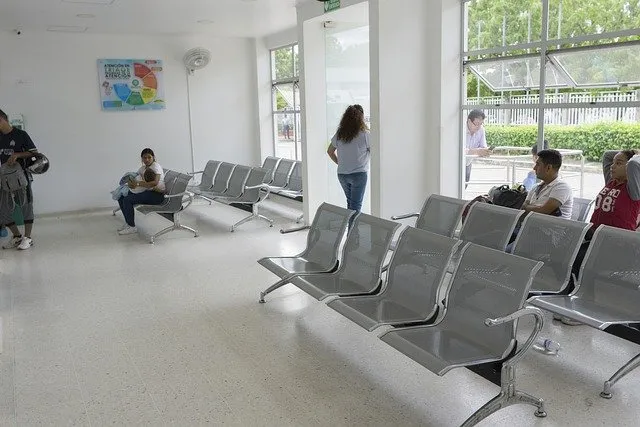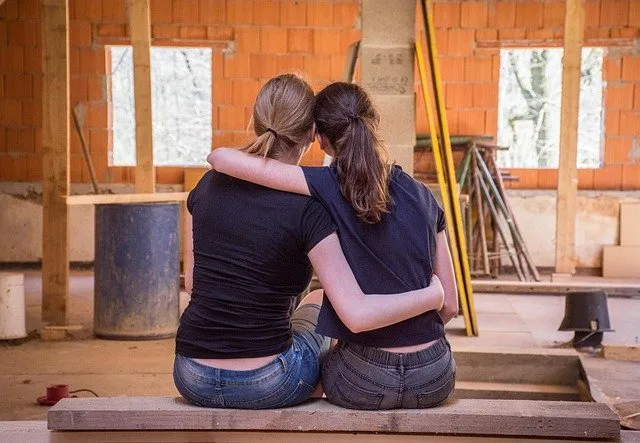7 Therapist Tips For
Parents: What To
Do After Your
Teen's Mental
Health
Hospitalization
Apr 13, 2022 | By: Hope for the Journey

Parents waiting for their teen to be released from a mental health hospitalization. Hope For the Journey offers therapy for parents in Austin, TX, and other services.

Your teen will need extra help and support following release from a mental health hospitalization. Find that extra support with Hope For The Journey, a counseling group that provides therapy for parents in Austin, TX & across Texas.

If you are the parent of a teen with mental health issues, you may need your own support. Find out more about therapy for parents in Austin, TX, or counseling for teens in Round Rock, TX today.
Your child or teen was hospitalized and has just returned from inpatient treatment. Whether it was long-term or short-term, it is a huge adjustment for the whole family. You may find you and your family needing support after the transition. As a therapist for Hope For The Journey, I’m here to offer you the concrete steps to ensure a smooth transition and optimize your child’s chances for recovery.
What To Expect After Your Teen Was Hospitalized for Mental Health Concerns
Seeking mental health hospitalization or residential treatment for your child or teen is never an easy decision. Parents often wonder if they’re making the right choice. Will inpatient treatment help? Will their child or teen to feel more in control of their mental health or will they feel traumatized? It is a time of high levels of stress and navigating the mental health system can be daunting.
After the treatment has ended, you might be wondering how to move forward and how to support your child after the experience. Your child or teen likely has learned and experienced a lot in their time in inpatient care and they will be grappling with how to apply what they learned to the ‘real world’. Inpatient can also be intense for some, and they may be needing support processing the experience. You, being the great parent you are, want to support them but maybe aren’t sure how.
First of all, you are not alone. It is common and normal to feel anxiety and worry about how to best support you and your family when a child is coming home from treatment. Here are some ways to help your whole family navigate the transition.
Teen Mental Health Hospitalization After Care Tip #1: Schedule Follow Up Care
Before your child even comes home, make sure you have scheduled an appointment with their outpatient therapist. This gives them a space to continue the growth they have made in treatment, as well as a space to process the experience. If they don’t have an outpatient therapist, make sure to find one that works with your child or teen’s specific age and needs.
Teen Mental Health Hospitalization After Care Tip #2: Establish Routine
One of the common things that kids can struggle with when they leave residential care is going from a predictable and consistent schedule to one with hours of idle time and uncertainty and what is next. Now, that doesn’t mean you need to sign your child up for every extracurricular activity under the sun. Try to create a consistent schedule and communicate the schedule to your child so they are aware.
Teen Mental Health Hospitalization After Care Tip #3: Take Some Time (Be Patient)
It takes time for families to readjust when a child has been away in treatment. The child may ‘try on’ old behaviors that were unhelpful. This is completely normal and DOES NOT mean that treatment has failed. Have patience and continue to support positive behavior and communication. Use specific praise when you see your child using positive communication or coping skills. Avoid comparing your child to themselves (i.e. Great job doing (insert positive behavior here), remember when you used to do (insert negative behavior here)?). Keep the focus on the positive, and remember that it takes time for everyone to readjust.
After Care Tip #4: Be Open
Encourage your child to give feedback about what they need (obviously within reason!). Help foster an environment where your child feels comfortable expressing their needs by listening without judgment. Remember that it is normal for kids to make mistakes, help them reflect and move forward, rather than shame and judge.
After Care Tip #5: Weekly Family Meetings
Start weekly family meetings to practice open and honest communication. Make sure that you reflect on challenges AND what your child is doing well at. Make it a designated day and time so it doesn’t catch anyone off guard and allow your child to add things to the agenda as well.
After Care Tip #6: Give Control
Frequently, kids & teens get into difficult situations when they are grasping for something they can control in their lives. Try to give them opportunities for control wherever you can, and avoid those power struggles. Pick the battles that are important to values and morals, try to let go of the little things and allow opportunities for your child/teen to have control in their lives.
After Care Tip #7: Seek Support For Yourself
You cannot pour from an empty cup. We know you’re trying your hardest to support your child, but don’t forget it is just as important to support yourself so you are able to be there when your child needs you. Remember that these transitions can be difficult for the whole family, including you. Make sure you are getting the care and support you need to be the best you that you can be.
Begin Therapy for Parents in Austin or Round Rock, TX
Bringing your teen home after a mental health hospitalization or residential treatment may seem like an overwhelming transition for you and your family to navigate. Our team of therapists at Hope For The Journey can help you to understand the needs of your child, as well as support your family with the skills and structure. We provide parent support and counseling, as well as family and individual counseling for kids, adults, parents, and partners. Call our Care Coordinator today to get support for your family. We’re here for you. To start your therapy journey, please follow these simple steps:
Other Services Offered At Hope For The Journey
We offer a variety of services from our Round Rock and Austin therapy offices. Mental health services include therapy for anxiety and depression, domestic violence, sexual assault, PTSD, and EMDR. Our team also provides support for family members of all ages with counseling for teens and young adults, children and tweens, couples, men, and parents/partners. Contact us today to learn more about our team and community involvement!
